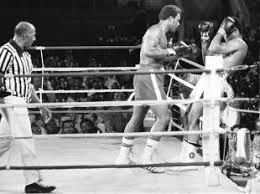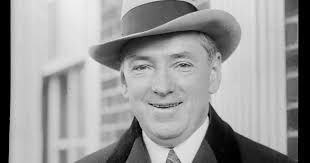Nib #52 — Congressional Speechwriting Pt. I: Congressman Who?
With the new Congress gaveling in today, a new class congressional speechwriters will soon be trying their hands at the old Mr. Speaker, comma, I rise in dot dot dot. So intermittently over the next few months, the Nib will try to help young staffers make congressional speeches great again.
Like most valuable writing advice, the best speechwriting tips are less about technical skills and more about habits of mind. Like this hard truth:
Congressmen aren’t all that.
One of the biggest mistakes congressional speechwriters make is assuming that their bosses are as central to their audiences’ lives as they are to their own. As if millions of people wake up in the morning desperately wondering what Rep. Smith thinks about H1-B visas or net neutrality.
Except for two or three senior party leaders, members of Congress are anonymous and seen as interchangeable, if not totally irrelevant. (If you doubt this, ask yourself how much you would care if a rando Midwestern congresswoman tomorrow announced she was for a flat tax or Medicare for All.)
Embracing this humbling — and deeply American — fact is the first step toward improving congressional oratory. Because it impels speechwriters to focus on their speeches rather than on the politicians reading them.
That Congressman Jones supports a carbon tax or a border wall is not significant. Why he supports it, on the other hand, could be. It’s the why — the background, the evidentiary record, the analysis — that has the power to persuade.
At the end of the speech, you want the audience thinking, “Good point,” not “Congressman who?”
Hill speechwriters, then, should eschew both rhetorical platitudes (“America deserves better” or “wrong side of history”) and pretensions to authority (“Let us…” or “This isn’t who we are”). Instead, they should make good arguments — tight, cogent, and substantive — and let their speeches’ beauty come from their clarity and concision, not any bumptious affectations.
The one thing all congressional speeches have in common is that no matter who the speaker is, the audience is actually his or her boss. Good congressional speeches build from the humbling fact of public service up, rather than from assumed VIP status down.
Happy New Year. Happy new Congress.
And until next week… keep writing!

All Rights Reserved 2024 Inkling Communications | Privacy Policy
Website Designed By Royals Advertising










